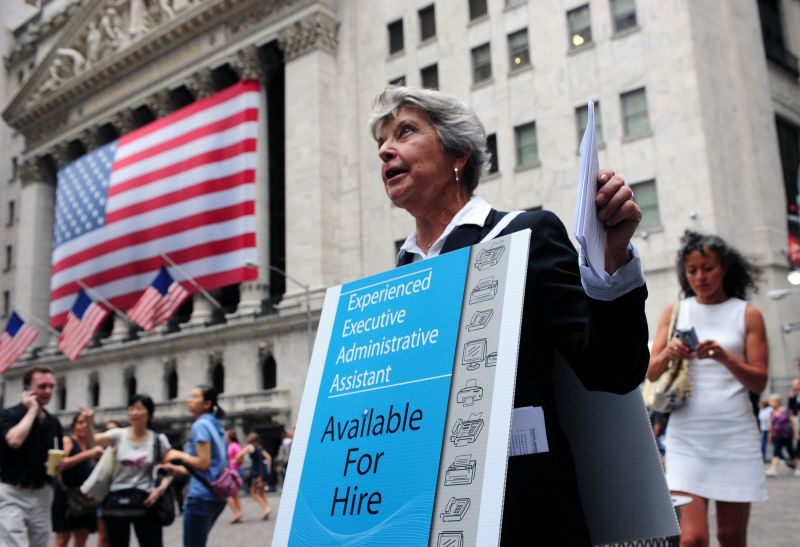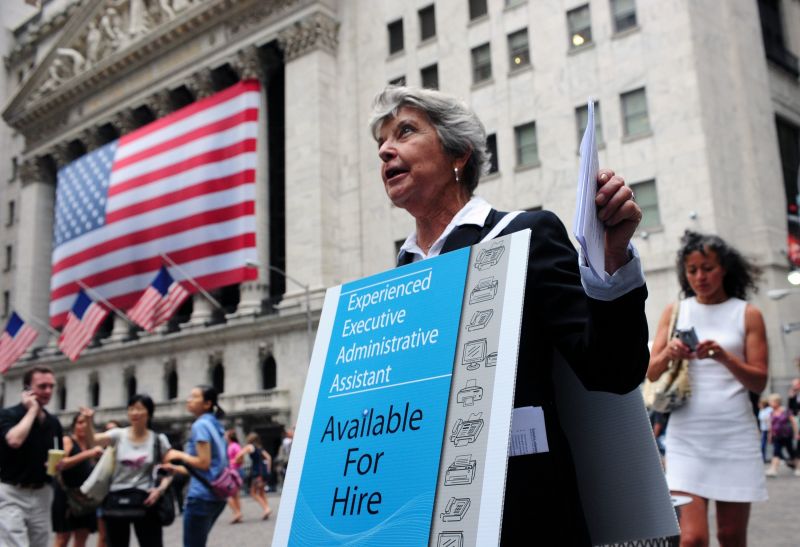
© Bryan Smith
Should older Americans who lost their job in the Great Recession give up the search and wait it out until retirement?
That’s the underlying question in a New York Times story today about older, unemployed Americans who’re finding it nearly impossible to break back into the workforce. They’re shipping out resumes and cover letters to no avail; some blame age discrimination, others rusty job skills. One academic called them the “class of new unemployables.” As the Times‘ Motoko Rich points out, 2.2 million of the 15 million unemployed Americans are over 55; half have been jobless for six months or more; and the 7.3 percent unemployment rate for that group is at an all-time high. The Times goes on to report:
Since the economic collapse, there are not enough jobs being created for the population as a whole, much less for those in the twilight of their careers…
After other recent downturns, older people who lost jobs fretted about how long it would take to return to the work force and worried that they might never recover their former incomes. But today, because it will take years to absorb the giant pool of unemployed at the economy’s recent pace, many of these older people may simply age out of the labor force before their luck changes.
The Times zeroes in on the experience of Patricia Reid, a laid-off auditor at Boeing in Washington state:
For Ms. Reid, it has been four years of hunting—without a single job offer. She buzzes energetically as she describes the countless applications she has lobbed through the Internet, as well as the online courses she is taking to burnish her software skills.
Still, when she is pressed, her can-do spirit falters.
“There are these fears in the background, and they are suppressed,” said Ms. Reid, who is now selling some of her jewelry and clothes online and is late on some credit card payments. “I have had nightmares about becoming a bag lady,” she said. “It could happen to anyone. So many people are so close to it, and they don’t even realize it.”
Calling it quits early—at 55, or 60, say—is hardly what most older Americans intended. Quite the opposite: With health care costs climbing, hard-hit pensions dwindling, and the cost of everyday goods continually rising, older Americans are hoping to work past the traditional retirement age—not leave the labor force early.
The Times doesn’t mention one curious statistic about older, unemployed workers. According to labor data, the older Americans most likely to remain stuck on the labor sidelines are better educated. It’s counterintuitive, but true. Older workers with either “some college,” a bachelor’s degree, or higher experienced longer durations out of work than those with just a high school diploma. Patricia Reid, the woman cited by the Times, fits the bill: she has a degree in business administration—and she’s been searching for work for four years. Maybe more education isn’t always a good thing if you’re searching for work.














